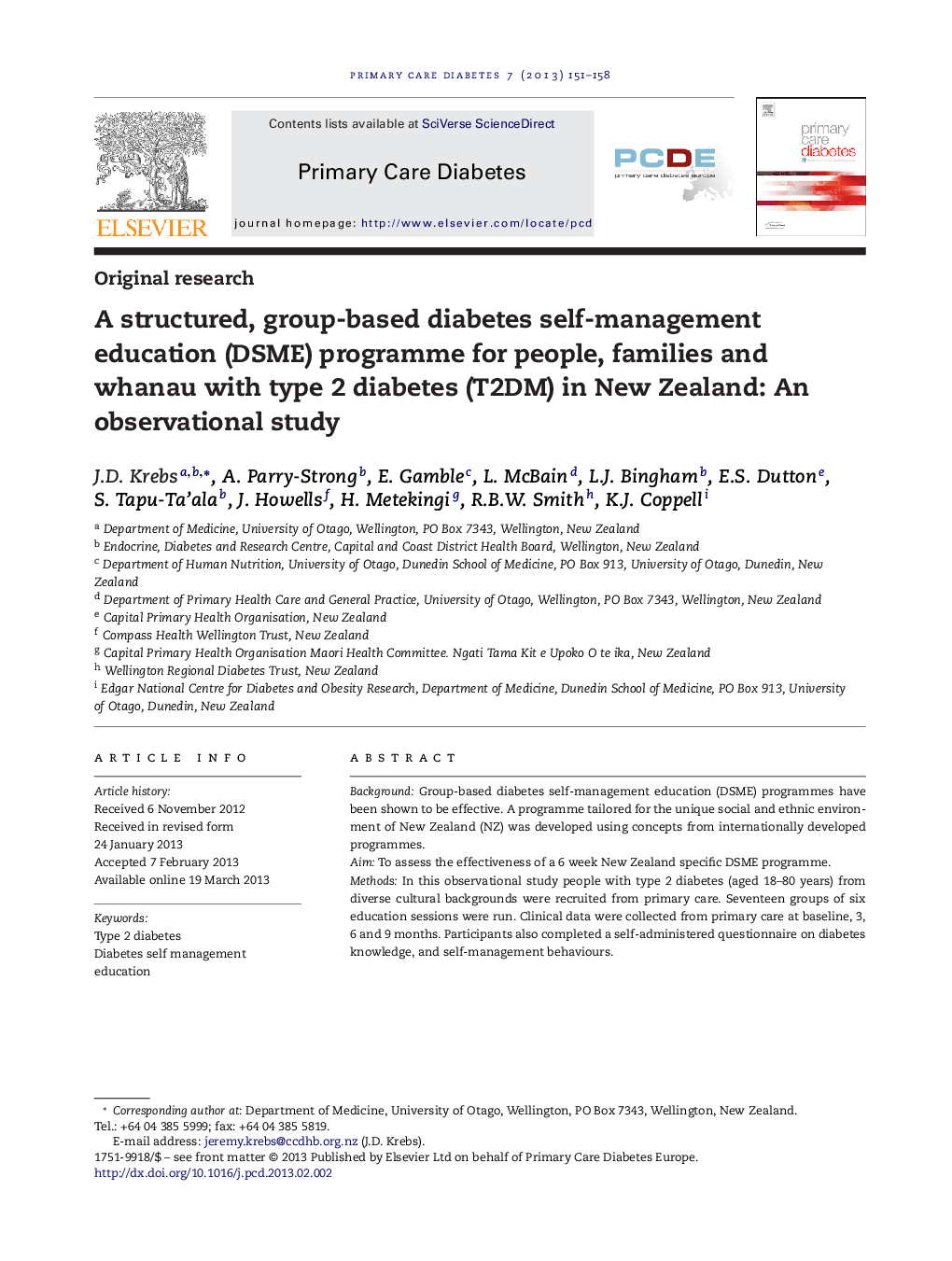| Article ID | Journal | Published Year | Pages | File Type |
|---|---|---|---|---|
| 2675592 | Primary Care Diabetes | 2013 | 8 Pages |
BackgroundGroup-based diabetes self-management education (DSME) programmes have been shown to be effective. A programme tailored for the unique social and ethnic environment of New Zealand (NZ) was developed using concepts from internationally developed programmes.AimTo assess the effectiveness of a 6 week New Zealand specific DSME programme.MethodsIn this observational study people with type 2 diabetes (aged 18–80 years) from diverse cultural backgrounds were recruited from primary care. Seventeen groups of six education sessions were run. Clinical data were collected from primary care at baseline, 3, 6 and 9 months. Participants also completed a self-administered questionnaire on diabetes knowledge, and self-management behaviours.Results107 participants, mean age 56.7 ± 11.3 years and mean duration of diabetes 7.5 ± 7 years (NZ European (44%), Maori (24%), Pacific (16%) and Indian (16%)), were enrolled. Confidence in self-managing diabetes, regular examination of feet, physical activity levels and smoking rates all improved. Glycaemic control improved between baseline and 6 months (HbA1C 64.9 ± 20.0 mmol/mol to 59.9 ± 13.9 mmol/mol (p < 0.05) (baseline 8.07% ± 1.80, 6 months 7.62% ± 1.25)), but was no different to baseline at 9 months. Systolic BP reduced from 131.9 ± 16.4 to 127.4 ± 18.2 mmHg (p < 0.05) at 6 months, but increased to baseline levels by 9 months. Diastolic BP, triglycerides and urine microalbumin:creatinine ratio were significantly reduced at 3, 6 and 9 months.ConclusionA group-based DSME programme designed specifically for the NZ population was effective at improving aspects of diabetes care at 6 months. The attenuation of these improvements after 6 months suggests a refresher course at that time may be beneficial.
